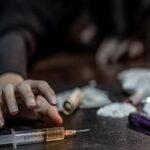South Koreans report higher level of depression in 2024
Survey Reveals Impact of Income on Happiness, Rising Anxiety, and National Sentiment Before Martial Law Crisis
A recent survey by the Korea Institute of Public Administration (KIPA) highlights growing anxiety and depression among South Koreans in 2024, with happiness levels significantly influenced by income levels.
Conducted between August and September 2023, the study surveyed 8,251 South Korean adults aged 19 and above and revealed notable changes in emotional well-being, financial stability, and political engagement.
Rising Anxiety and Depression Amidst Economic and Social Pressures
The survey results show a concerning increase in mental health challenges:
- The average anxiety level among respondents rose to 4.1 out of 10 in 2024, up from 3.4 the previous year.
- Depression levels also increased, rising from 2.8 points in 2023 to 3.5 points in 2024.
- Despite the rise in mental health concerns, overall happiness remained relatively stable, increasing by 0.1 point to an average of 6.8.
Happiness Levels Decline with Age
The survey found that younger respondents reported higher happiness levels compared to older age groups:
- Ages 20–30: 7.0 points
- Ages 40–50: 6.8 points
- Ages 60 and above: 6.6 points
This trend aligns with previous research indicating that aging, declining health, and financial concerns contribute to lower happiness levels among older populations.
Income Strongly Influences Happiness and Social Perception
A significant correlation was observed between income levels and personal happiness:
- Lowest income group (earning less than 1 million won/month): Reported happiness declined from 6.1 to 6.0 points.
- Highest income group (earning over 6 million won/month): Reported happiness increased from 6.8 to 7.0 points.
Perceptions of social status also varied based on income:
- Low-income households (under 1 million won/month): Their perception of social status increased slightly, from 4.8 to 4.9 points.
- High-income earners (over 6 million won/month): Perceived status rose more significantly, from 5.7 to 6.1 points.
This suggests that financial security plays a major role in both happiness and a person’s sense of social standing.
Financial Struggles Driving Depression and Anxiety
Several financial burdens contributed to the increase in depression and anxiety:
- Student loan debt: The percentage of individuals taking out loans for tuition increased from 2.5% to 4.7%.
- Housing instability: More respondents were forced to relocate due to rising rent, increasing from 2.3% to 4.6%.
- Healthcare inaccessibility: The proportion of respondents who could not afford medical care due to hospital costs rose from 2.0% to 3.0%.
These findings suggest that financial difficulties are a major factor affecting mental health, as individuals struggle with education costs, housing expenses, and medical care.
National Pride Peaked Before Political Crisis
The survey was conducted just months before South Korea plunged into political turmoil following President Yoon Suk Yeol’s December 3 martial law declaration and subsequent impeachment. Despite these later events, the study found that national pride had reached its highest recorded level:
- National pride score: 3.1 out of 4—the highest since the survey began in 2013.
The findings indicate that before the political crisis, national morale was strong, suggesting that economic and social stability played a role in shaping public sentiment.
Public Satisfaction with Politics and Economy Improved Slightly
The survey also recorded an increase in satisfaction regarding political and economic conditions:
- Political satisfaction: Rose 0.7 points to 5.1.
- Economic satisfaction: Increased 0.7 points to 5.3.
This may have been due to economic recovery efforts, policy initiatives, or improved employment rates before the crisis unfolded.
Political Engagement Increased Significantly
The study revealed a rise in civic participation, with more South Koreans actively engaging in political discussions and movements:
- Participation in petition drives: Increased from 10.8% to 12.2%.
- Online political expression (blogs, forums, social media, etc.): Grew from 10.2% to 11.3%.
- Participation in protests or rallies: Rose from 8.1% to 10.9%.
The rise in political activity suggests that South Koreans were becoming more politically aware and engaged, particularly in response to evolving social and economic challenges.
Political Ideology Breakdown
The survey found that moderate political views remained the most common:
- Moderates: 45.2% (largest group).
- Conservatives: 30.2%.
- Progressives: 24.6%.
This distribution suggests a diverse political landscape, with a nearly even split between conservative and progressive views, while moderates form the largest bloc.
Key Takeaways and Implications
- Economic Hardships Are Fueling Mental Health Struggles
- Rising depression and anxiety were linked to financial instability, housing issues, and healthcare costs.
- Younger generations are reporting higher happiness, while older adults face increasing challenges.
- Income Plays a Significant Role in Well-being
- Happiness and social status perception increased among high earners, while low-income groups reported declines.
- Widening financial disparities may contribute to growing social and economic tensions.
- National Pride Was at an All-Time High Before the Political Crisis
- Despite political and economic concerns, South Koreans expressed strong national pride before the martial law crisis.
- Increased political engagement suggests that citizens were more active in shaping the country’s future.
- South Korea’s Political Landscape Remains Divided
- The largest political group identifies as moderates (45.2%), with conservatives (30.2%) and progressives (24.6%) showing near-equal representation.
Final Thoughts
The survey paints a complex picture of South Korea’s societal landscape in 2024. While happiness levels remained stable, anxiety and depression surged due to financial struggles.
Income disparities played a major role in well-being, and national pride peaked before the country faced a political crisis. Meanwhile, civic engagement grew, signaling a more politically aware and active society.
What are the pros and cons of a vegan diet?
How Do You Feel When Your Sugar Is Low?

A graduate of Computer Science and Information Management Technology. Diploma – Caregiving, Certificates – Dementia and Diabetes Awareness and Management. A researcher, blogger, songwriter, singer and acoustic guitarist. Born in an environment where natural talents such as healing are imparted at our natural birth. This natural talents of healing is the result of our genetic inheritance and the training from family environment.












